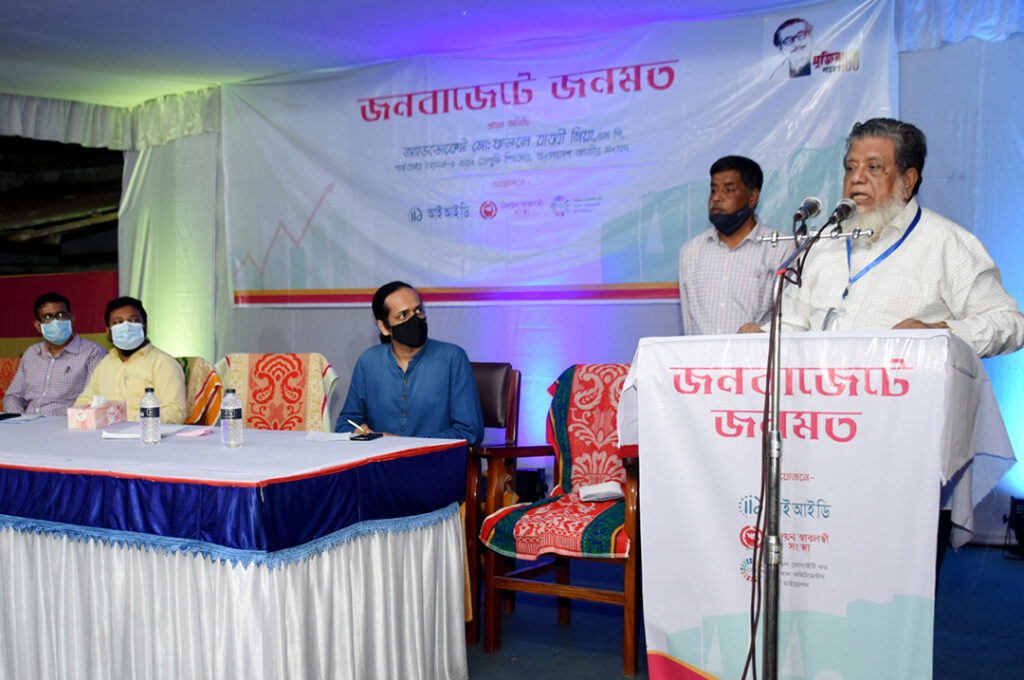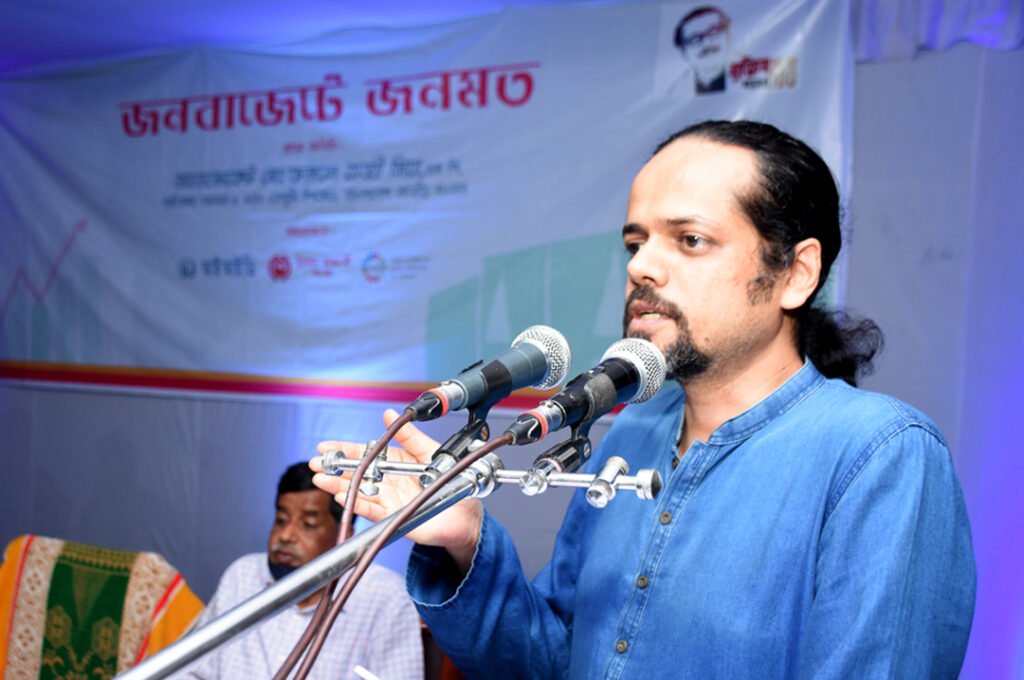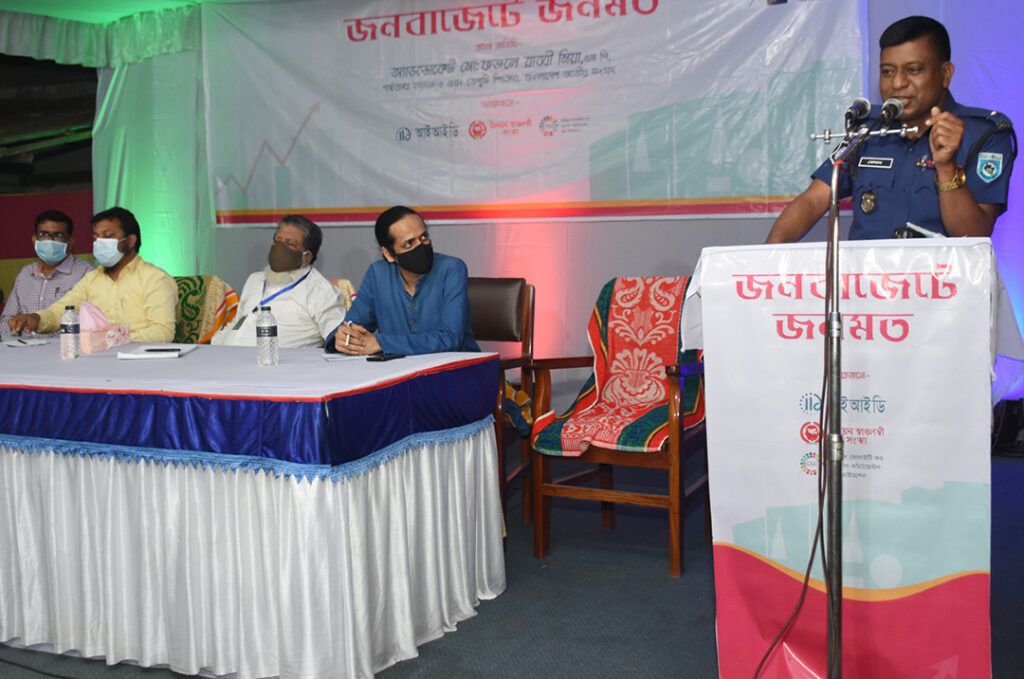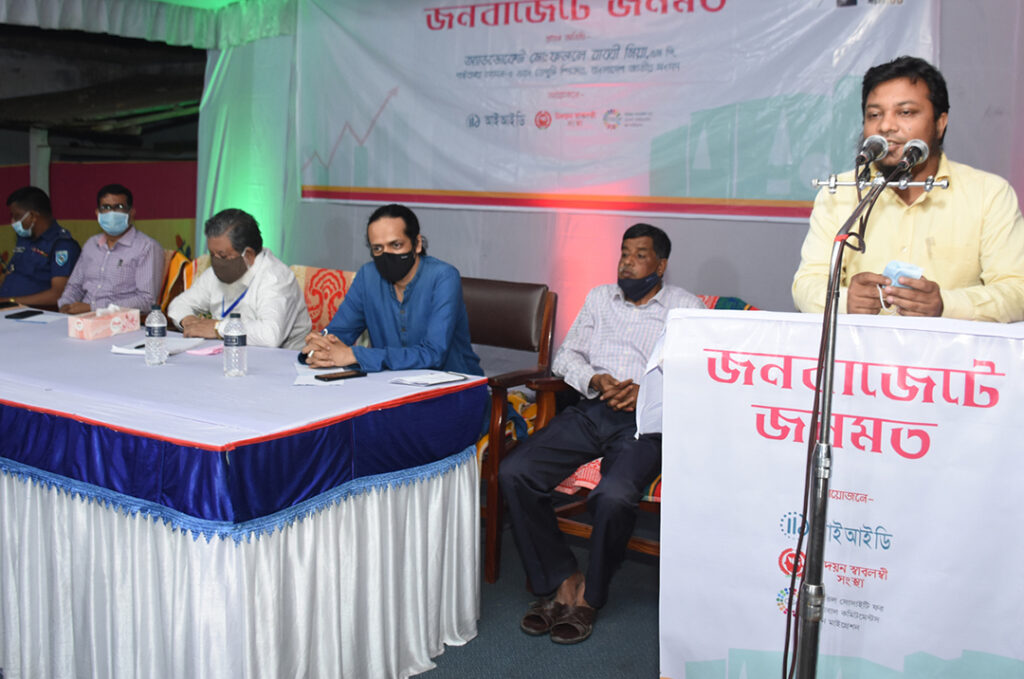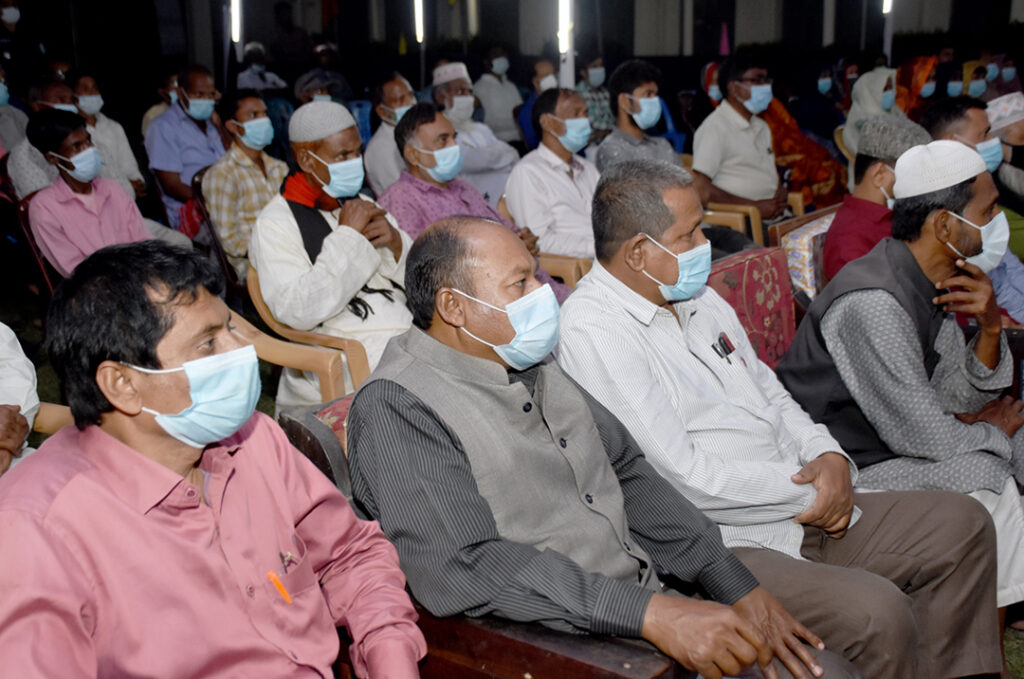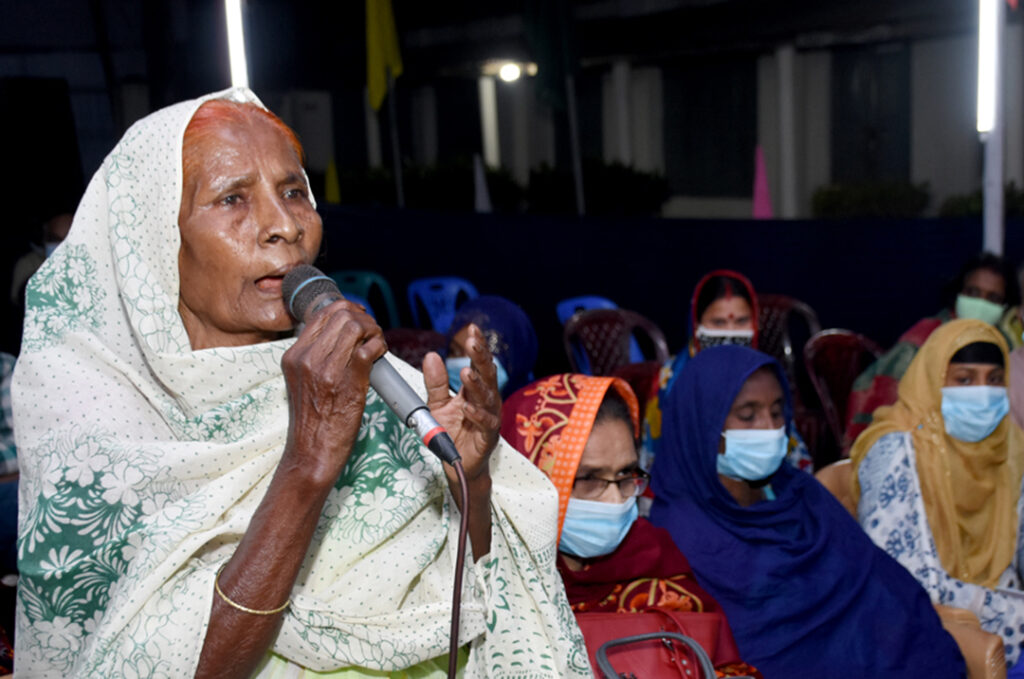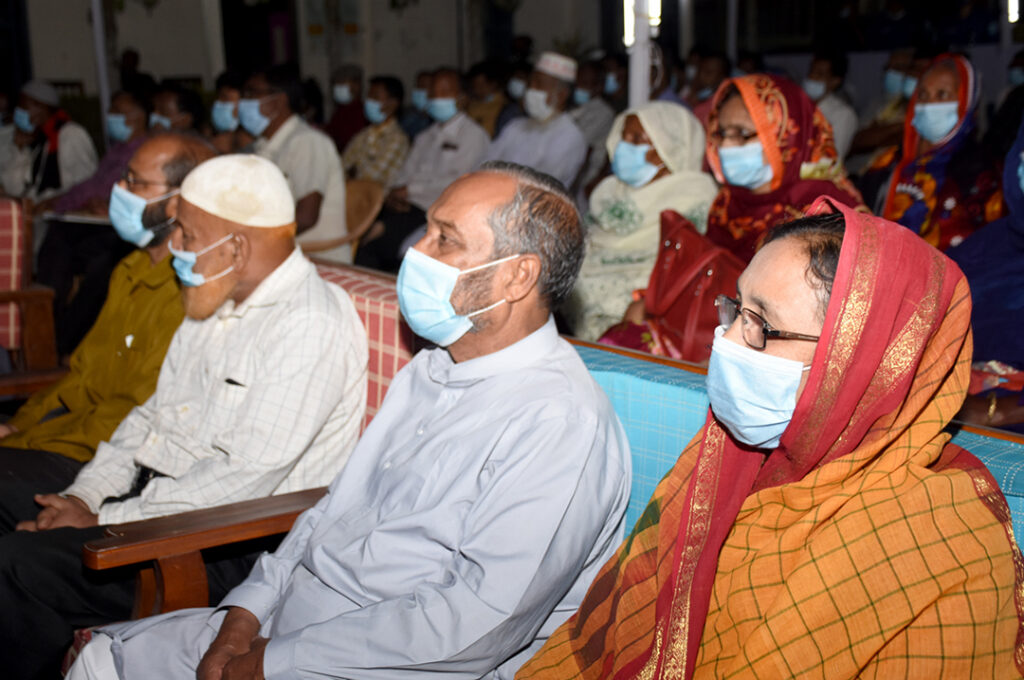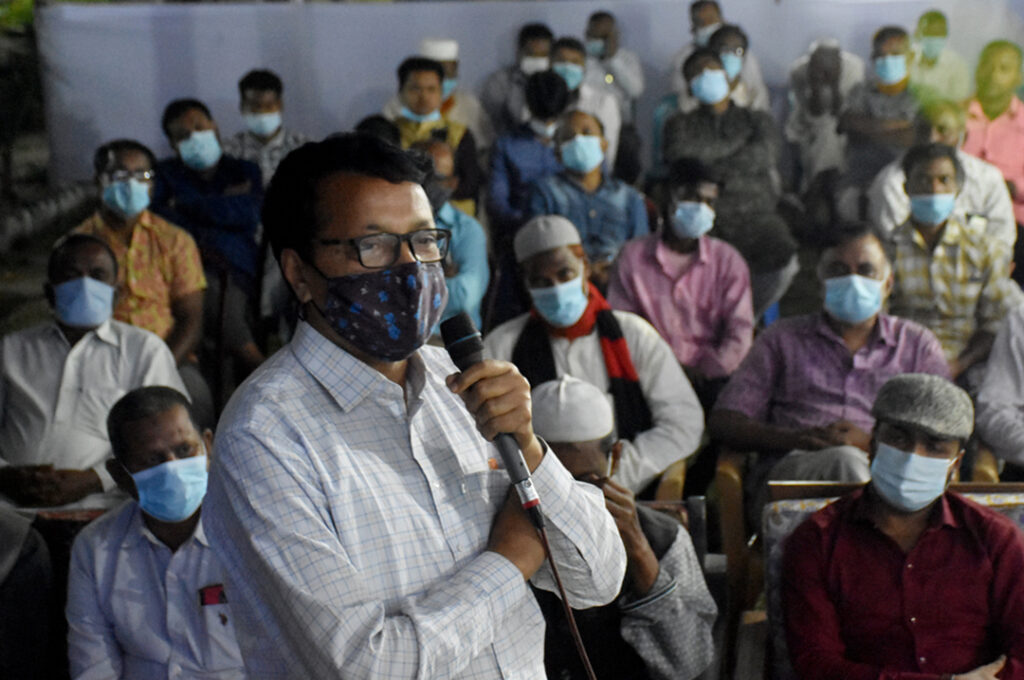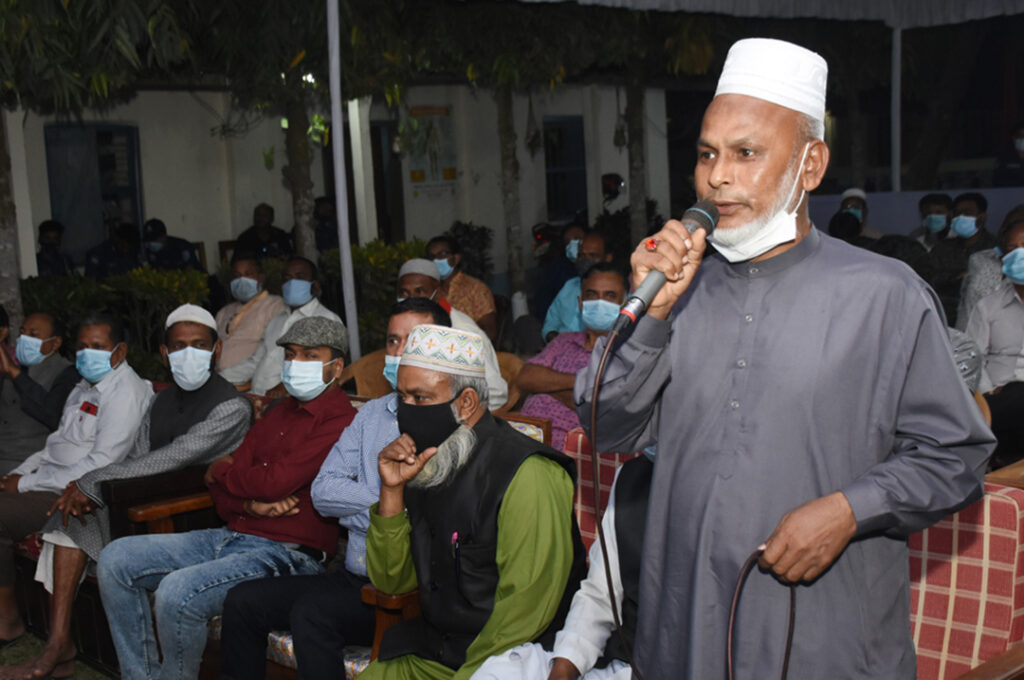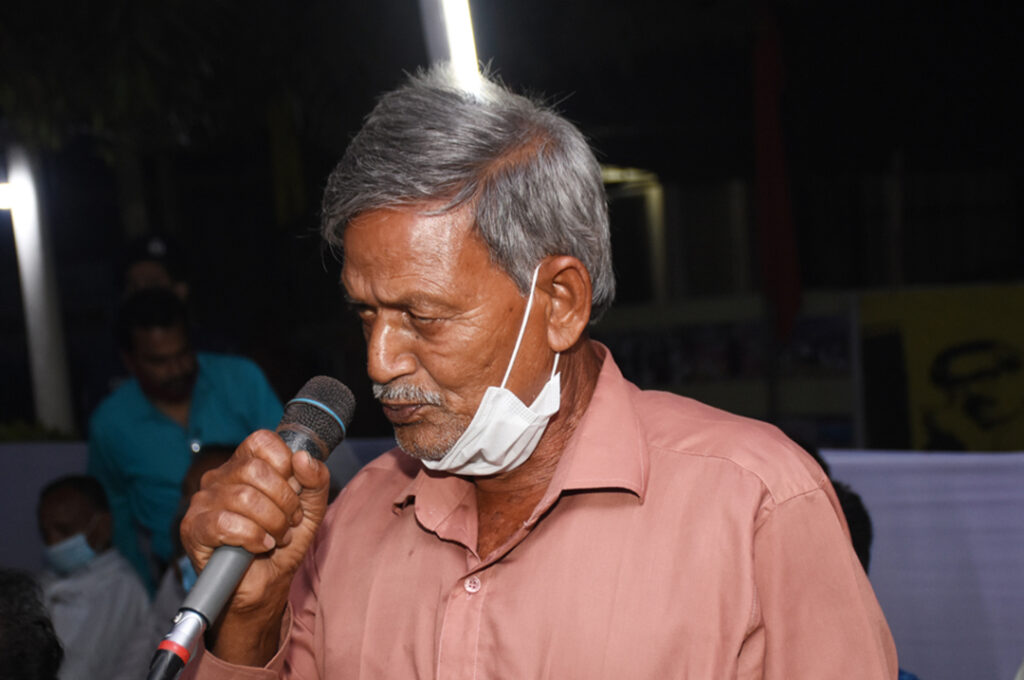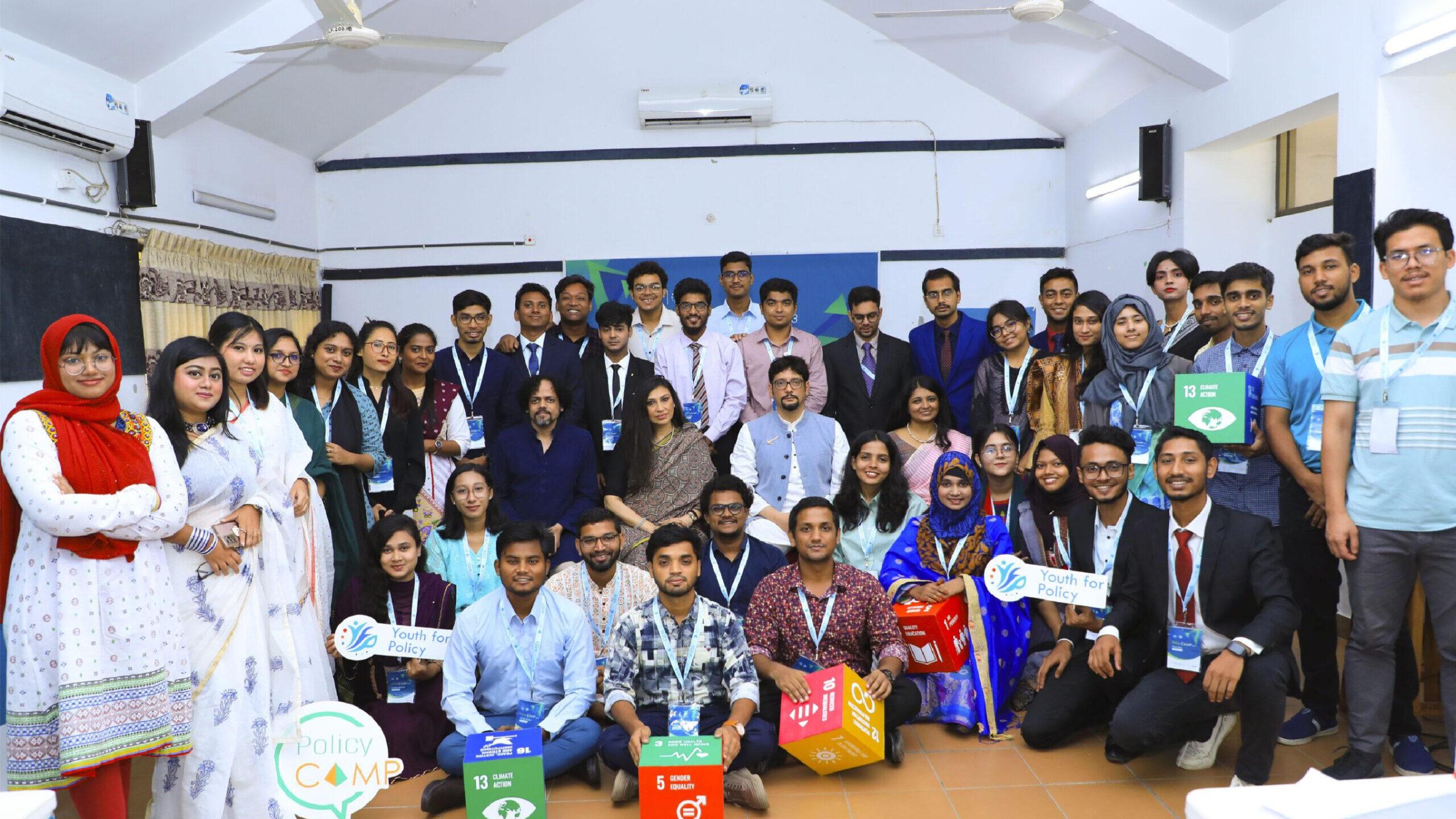Citizen participation in a democracy is a process that engages people in making decisions and planning. The public play is an active role in the design and operation of services delivery systems that affect their lives. It is a process through which the members of the public are informed, consulted and/or involved in ensuring that their sentiments are taken into account especially in government processes. This is particularly important for the budget-making process and implementation. In the process of budgeting, including the citizens’ voice entails demystifying the budget and the budgeting process, responding to the basic needs of citizens at the grassroots level, improving budget allocations and facilitating fund distribution procedures, and preventing financial corruption and enhancing accountability.
In this context, government officials, civil society organizations, and residents of Gaibandha’s Saghata Upazila joined together in a consultation on “Jono Budgete Jonomot” (Public opinion in the national budget), – a grassroots initiative aimed at identifying citizens’ needs and priorities, and then undertaking evidence-based advocacy to get those demands incorporated into the budget. IID co-hosted this event with its local partner Udayan Swabolombee Sangstha on 18th February 2021 from 7:00 to 10:00 pm at Saghata Upazila in Gaibandha. Advocate Md. Fazle Rabbi Miah, Member of Parliament from Gaibandha-5, and the current deputy speaker of the National Parliament was the chief guest of the event.
In his welcoming speech, Md. Shahadat Hossain Mondal, Executive Director of Udayan Swabolombee Sangstha highlighted the importance of transportation in achieving sustainable rural development and national growth and suggested prioritizing the improvement of transport services and development of local infrastructure (such as paths, tracks, trails and footbridges) within the local budget to improve mobility and hence access.
Syeed Ahamed, CEO of IID highlighted the importance of public participation in the budget process to ensure the accountability, transparency and responsiveness of the budget. He pointed out that the pre-budget grassroots consultation aimed to provide a platform to the public to voice their concerns and demands so that these grievances can be taken into consideration while planning the local budget. Since the local people can truly understand the developmental problems of a community, suggestions from them should be incorporated properly to make development people-oriented.
People from all walks of life, including teachers, students, housewives, farmers, labourers, and members of the marginalized community, spoke up about a variety of issues at the consultation.
Shamsul Haque, a youth representative, stressed that the rural applicants are falling behind in the job market due to urban-rural disparities in educational quality and access to information. He suggested the budget planning must incorporate initiatives to minimize this gap.
Joynal, another youth representative, mentioned that pandemic-induced unemployment and pay cuts are taking a toll on the livelihoods of low-income workers. He called for budget planning that will either ensure a minimum wage for these people or increase their income.
Anwar Hossain, a teacher, agreed on prioritizing the health sector in budget planning in light of the pandemic. However, he recommended that the education sector receive approximately 15-20% of the national budget. This budget should also address the educational losses caused by the pandemic.
Highlighting Saghata Upazila’s extreme unemployment, Rajesh Bashfore, a representative of the Harijan Community, suggested that budget planning must focus on creating new employment opportunities. The budget also requires allocation for an income-generating program for women and adult education projects. Furthermore, he claimed that the practice of untouchability in this Upazila deprives the Harijan community of their rights. He requested the authorities to take responsibility to protect and ensure social justice for the Harijan community.
Another teacher pointed out that, since Kindergartens are not funded by the Government, students’ tuition fees are their only source of income. He implored the government to provide financial assistance to kindergarten teachers, highlighting their plight as a result of the pandemic.
Budgeting for Fair Labor Migration session chaired by Tanvir Shakil Joy, MP. Panel keynote speakers Syeed Ahamed and Sumaiya Islam, ED, BNSK, Syed Saiful Haque, Chairperson, WARBE discussed that at present, the budgeting process is plagued by inter-ministerial conflict and a lack of coordination and cooperation. The budgeting process must ensure gender equality and gender responsiveness to accommodate the special needs of female migrant workers. In particular, prioritized allocations must be made in the migration budget for high-quality training for migrants in overseas jobs, implementation of proper reintegration plan for returnee migrants, and ensuring the welfare of migrant workers already employed in different countries.
Bulbuli, a woman leader demanded social protection for the activists working to end child marriage. She also urged the government to take initiatives to keep unemployed youth engaged during the lockdown to prevent them from going down the wrong path.
Abdul Jabbar, a farmer proposed that a minimum wage for field workers be incorporated into the budget. At the same time, it is important to ensure that middlemen do not exploit the rice price.
Businessman Md. A. Razzak emphasized the necessity of more investment in technical skill development in addition to general education.
In response, Md Mohiuddin Jahangir, UNO, Ministry of Public Administration, promised to look into the claims of the Harijan Community and protect their constitutional rights. He also acknowledged the challenges the kindergarten teachers are facing amid the pandemic. Moreover stressed the importance of anti-child marriage public awareness campaigns. Besides, he ensured to arrange education scholarships to minimize the urban-rural inequality. He also promised phone access and remote learning for rural students if the pandemic continues.
Emphasizing their plight amid the pandemic, Md. Sabiul Islam, Executive Engineer, LGED proposed financial aid to meet the subsistence needs of the low-income workers. He also called for an effective action plan to prevent any future pandemic-induced shocks.
Mr. Fazle Rabbi Miah, the current deputy speaker of the Jatiyo Sangshad, called for increased budgetary allocation for education to overcome the pandemic-induced stagnation in the sector. Mr. Rabbi also proposed that the government’s Free Education Campaign consider lowering or eliminating exam fees. Moreover, he talked about strengthening the capacity of the Bangladesh Agriculture Development Corporation (BADC) to provide the farmers with good quality seeds. He also suggested higher budget allocation for agriculture research
This event provided the grassroots, particularly the vulnerable section such as youth, low-income populations, and marginalized community with opportunities to be meaningfully involved in local policy-making, while also helping to increase equity and justice within public systems and institutions.

